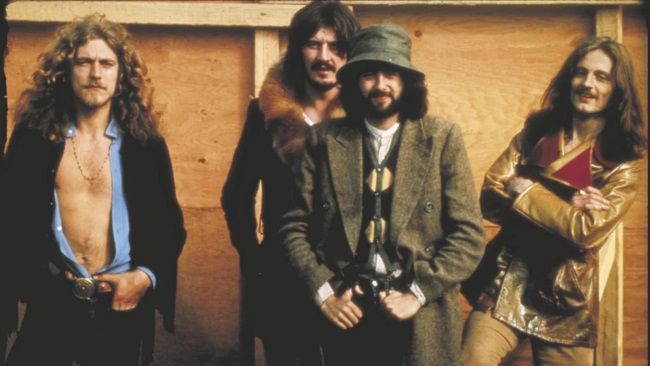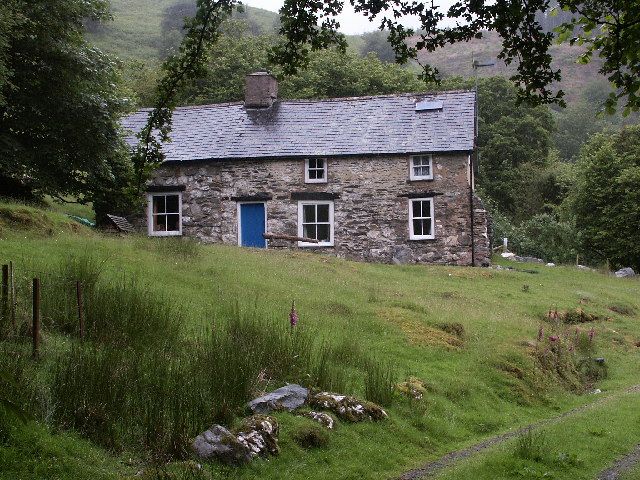I listened to Led Zeppelin quite a lot when I was a teenager and into my 20s. Nothing unusual here, nothing that countless other young men didn't indulge in as well. At some point, though, I moved on. It wasn't a falling out so much as me just finding lots of other musical rabbit holes to go down. As the years wore on Zeppelin would occasionally return to my musical diet after long periods of absence. A song of theirs might come on the radio or I would just get a hankering to hear one of their tunes.
One sad day I unceremoniously disposed of most of my tapes and records and found myself having to rebuild my music collection. I was in no hurry to buy any Led Zeppelin. At some point or other, I decided it was time to buy some of their albums but found that, in my 30s, I had become less enamored of Robert Plant's wailing and keener on listening to the blues artists that Zep had covered and been influenced by than their interpretations.
But I never lost sight of the fact that the guys were extremely talented and had a body of work that was much more eclectic than riffs and orgasmic moans. Some of their songs remain classics for me and have aged very well. Just like your humble narrator.
One Led Zeppelin song that I still love is "When the Levee Breaks". Yeah, it's a blues cover but it's really a re-working of a country blues song and not just a traditional blues tune put into overdrive with heavier guitars and a faster tempo. This is something altogether different.
I first heard this song when I was about 10 years old and loved it immediately, as I recall. I also remember thinking of it as being quite different from the rest of that album, Led Zeppelin's untitled 4th, a.k.a. - Led Zeppelin IV, a.k.a. - Zoso, a.k.a. - Four Symbols. "When the Levee Breaks" wasn't riff rock and it wasn't acoustic balladry. It was...just hypnotizing.
It opens with what is probably the most famous drum line in all of rock history. John Bonham's bass drum is drenched in reverb and right up front pounding away while his snare has a that great woody pop to it. The drums echo just enough to be readily noticeable and give the listener a sense that there's simply something different about them but not done with too heavy a hand to make them sound thoroughly unnatural.
Then harmonica, bass, and guitar come in. The guitar has a rather clean sound - no big fuzzy chords. It churns away in the background instead of being the main melodic component that your ears grasp onto immediately. The original version of the song by Memphis Minnie and Kansas Joe McCoy is a rather bouncy country blues. But Led Zeppelin transform it into a sludgy, raga-like epic.
There are no typical Jimmy Page guitar solos. In their stead we get breaks of distorted slide guitar that pay homage to the blues but don't really sound like it. The song just sounds dark and slightly surreal. If Jimi Hendrix took the blues into outer space and gave them a crazy, psychedelic sheen, then Zeppelin take them underground here, rolling them in the raw earth. That catchy drum beat and the jangly, churning guitar just don't stop and draw you in until you're lost in their rhythm.
Sometimes the guitar is clean, other times it has a wooshy effect - tape flanging, apparently. I've also heard that the tape was slowed down just a bit so the whole song steps down in key and, if you compare the released version to versions of the song that are more works-in-progress and not so adulturated, the instruments kind of meld into one another as in an alchemical blending of base elements.
No one element sticks out here with the others playing support roles like in other Zep songs where things seem to built around a guitar riff. This song feel orchestrated with everyone's contributions making a whole greater than its parts.
When I finally did buy a Led Zeppelin CD, it was Led Zeppelin III.
While the album has some classic riffing and more traditional takes on the blues, it's known for being the acoustic album in their catalog. They decamped from the big city (I think) and settled into a cottage in the Welsh countryside and returned to the city with several more acoustic, folky-flavored songs. That's the rock lore, anyway.
Of that bunch of softer songs, "That's the Way" stands out for me.
The gentle strum of an acoustic guitar opens the song but is quickly joined by mandolin to provide a sprightly rhythm that goes up and down with the first part ending on a high note followed by a decent into lower ones. Steel guitar adorns the acoustic instrumentation and adds a dreamy quality to the bucolic scene. Towards the end of the song as it meanders to a close, there's a little bit of a sound played backwards as you can hear delicate whooshes, as if the wind is gently lifting something up into the air. It's subtle, though and doesn't drag you off into some psychedelic landscape like the Stargate sequence in 2001: A Space Odyssey. Rather it's more like when Jessica Chastain's Mrs. O'Brien floats and glides around that big old tree in that scene from The Tree of Life.
Robert Plant eschews the wailing here, for the most part, as he takes a mellower approach to singing some rather impressionistic lyrics that only give glimpses of various scenes. The first verse begins with what appears to be the end of a childhood friendship before quickly zooming out and then in on a young man being ridiculed for having long hair, as one did in 1970. Later there are what seem to be more environmentally conscious lyrics where someone concerned with the state of environment has their concerns shrugged off - "all that lives is born to die".
The song feels like you're sitting by a window as the sun streams in and you look out at the tall grass bending in the wind as the leaves rustle and you let your mind wander, wander down the years to childhood and back up to the present with anxiety over the future. "That's the Way" is just a very pretty song with a hint of the wistful that floats along like a daydream.
Also check out the rough mix. The steel guitar is missing but it has some lovely dulcimer runs that the finished version lacks.


No comments:
Post a Comment